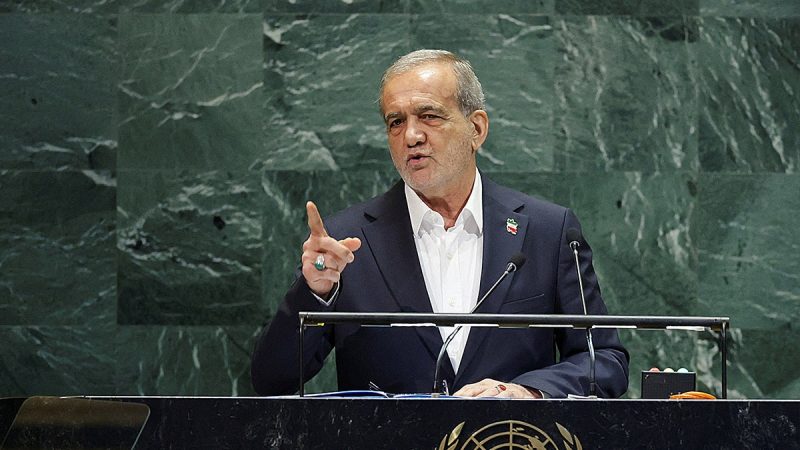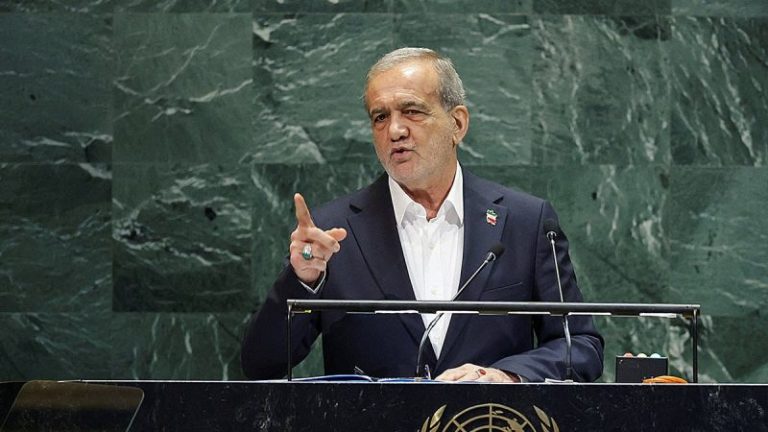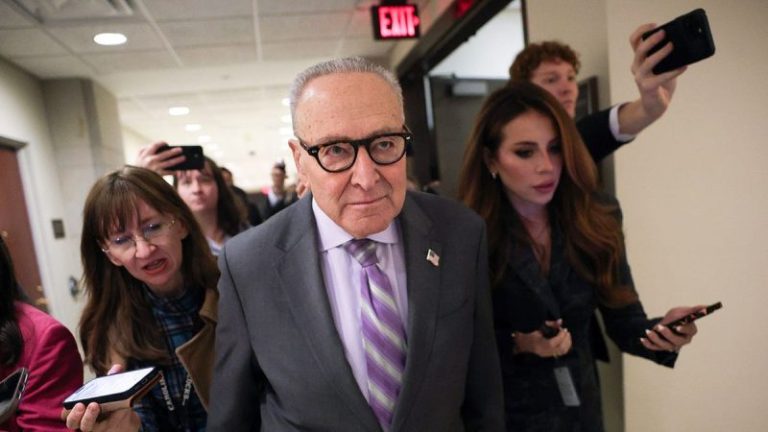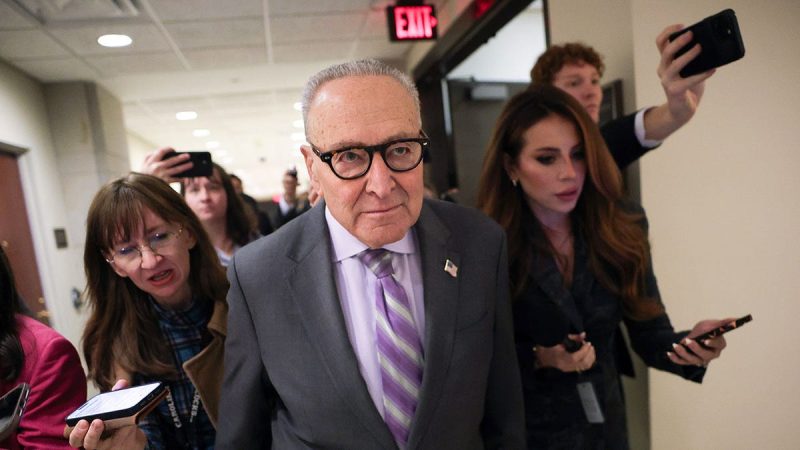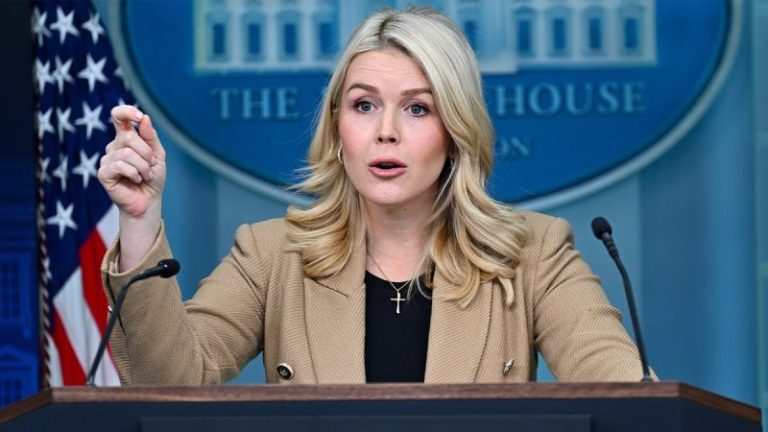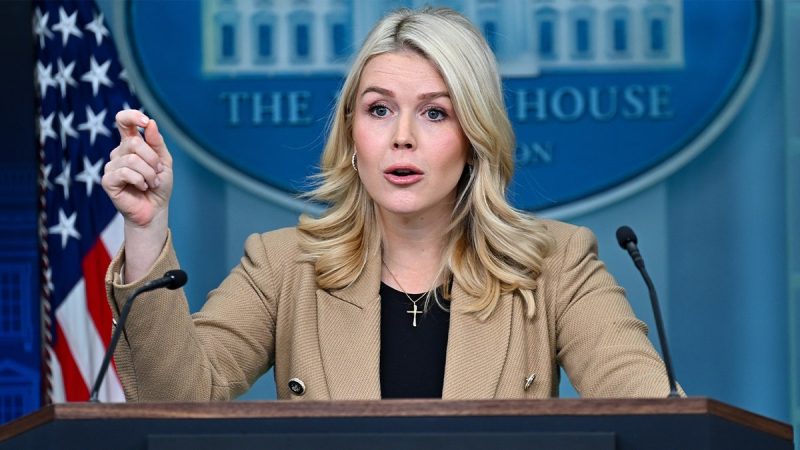
MILAN — It’s Thursday at the 2026 Winter Olympics, and Chloe Kim is going for her third Olympic gold medal. If she wins the halfpipe, she’ll be snowboarding’s first back-to-back-to-back gold medalist — and she’s doing it all after multiple shoulder injuries just weeks before the Olympics.
The day begins with women’s curling round robin sessions. Breezy Johnson is among four Americans on the start list for the women’s Alpine super-G medal event. The USA is also represented in the men’s moguls, where Nick Page and Dylan Walczyk are in the finals. And 44-year-old Nick Baumgartner leads Team USA in the men’s snowboard cross competition.
The USA men’s hockey team faces Latvia in a preliminary game. Three American women, including Jessie Diggins, will be in the cross-country medal race for the 10km interval start freestyle. And there’s plenty of short track speed skating to watch.
Follow it all live with USA TODAY Sports reporters on the ground in Italy.
USA men’s hockey extends lead to 3-1
USA men’s hockey tied 1-1 with Latvia after first period
The United States had two goals waved off in the period after Latvia was successful with challenges.
American Kristen Santos-Griswold fails to advance in women’s 500 meters of short-track speed skating
MILAN — A night of potential redemption turned more frustration for U.S. short-track speed skater Kristen Santos-Griswold.
Santos-Griswold failed to reach the finals of the women’s 500 meters Thursday, Feb. 12. She crashed multiple times in her three races before five other skaters moved on to the final race without her.
And so Santos-Griswold have to live not only with that but what took place four years ago.
At the 2022 Winter Olympics, Santos-Griswold led the1,000 meters heading into the final lap before she was taken out by another competitor. The crash relegated her to fourth. – Josh Peter
Brady Tkachuk gives USA men’s hockey 1-0 lead
USA men’s hockey takes an early 1-0 lead against Latvia in Game 1 at the 2026 Winter Olympics thanks to a goal from Brady Tkachuk off a pass from his brother, Matthew Tkachuk. The United States looked to be going up 2-0 after Quinn Hughes got one into the back of the net, but a Latvia challenge for offside was successful.
USA men’s hockey underway against Latvia
Team USA’s pursuit of a gold medal in men’s hockey is underway as the USA men’s hockey team is underway against Latvia in Group C play. Click here for live updates of the game.
Chloe Kim wins silver in women’s halfpipe
Chloe Kim’s chase of a three-peat of Olympic gold in the women’s halfpipe fell just short. The U.S. snowboarder came up with the silver medal after not finishing her second and third runs due to falls. South Korea’s Gaon Choi won gold thanks to a 90.25 score on her third run, which came after back-to-back crashes on her first two runs.
Chloe Kim finishes first run, moves into first
Chloe Kim posts a score of 88.00 in her first run of the women’s halfpipe finals. Kim’s score is good enough to put her in first place on the leaderboard; she’ll have two more runs, with her highest score being used.
Only five snowboarders posted runs in their first run due to crashes on the course. Pipe conditions aren’t ideal right now with snow coming down.
Myles Garrett wearing Chloe Kim jacket at women’s halfpipe
Cleveland Browns’ defense end Myles Garrett is back to watch his girlfriend, U.S. snowboarding legend Chloe Kim, compete in the women’s halfpipe at the Winter Olympics. This time, though, the two-time NFL Defensive Player of the Year is wearing a jacket with Chloe Kim’s face on it as she goes for three straight Olympic gold medals in the event.
As noted by People Magazine, Kim and Garret were first linked in May 2025 when they attended the Crunchyroll Anime Awards together in Japan. They then confirmed their relationship in November 2025, when Kim attended the Cleveland Browns’ road game against the Las Vegas Raiders.
South Korea’s Gaon Choi crashes during women’s halfpipe run
South Korea’s Gaon Choi takes a hard fall after hitting the lip as she came down on her second trick during her first run of the women’s halfpipe finals. She was tended to for a few minutes before getting up on her own and scooting down the course.
Chloe Kim goes for three-peat in women’s halfpipe
The first run of the women’s halfpipe finals is underway at the 2026 Milano Cortina Winter Olympics. Team USA’s Chloe Kim is going for her third consecutive Olympic gold medal in the event.
Team USA finishes off podium in luge team relay
MILAN — The American team finished in fifth place in the luge team relay with a total time of 3:42.776 at the 2026 Winter Olympics on Thursday, falling 1.104 second short of the country’s first-ever Olympic gold luge medal.
The women’s luger goes first and hits the touchpad at the bottom of the track to open the gate for the next racer. The men’s doubles team goes next, finishing with men’s singles and women’s doubles. The team with the lowest cumulative time wins.
Olympic bronze-medalist Ashley Farquharson kicked off the event for the Americans in the women’s singles portion with a time of 55.771. Ansel Haugsjaa and Marcus Mueller carried on the momentum and recorded the second-fastest time of the men’s double luge portion at 55.281 Jonathan Gustafson followed with a time of 55.197 in the men’s singles portion and the duo of Chevonne Forgan and Sophia Kirby finished at 56.527.
Germany won the gold medal with a new track record of 3:41.672. Austria took silver (3:42.214) and Italy won bronze (3:42.521). — Cydney Henderson
Tiebreaker determines gold, silver medal in men’s moguls
LIVIGNO, Italy — The score flashed on the screen, 83.71, the same exact one that had been posted for the previous competitor, as both Australia’s Cooper Woods and Mikael Kingsbury of Canada tied atop the leaderboard at the conclusion of men’s moguls finals at the 2026 Milano Cortina Winter Olympics.
Only one – Woods – left the Games with a gold medal.
Woods finished first because he won the first tiebreaker, which is determined by the judge’s ‘turn score.’ Three separate scores are combined for the skier’s final total – turns, aerials and time. Woods bested Kingsbury by .70 – 48.4 to 47.7 – in turn score, leaving Kingsbury with a third Olympic silver medal (he also won gold in PyeongChang, South Korea in 2018) in the event.
‘It was very close,’ Kingsbury said. ‘You can’t get any closer than that. I’m very happy for Cooper.’ – Chris Bumbaca
Canada men’s hockey defeats Czech Republic
Canada rolls through the Czech Republic 5-0 in men’s hockey. The Canadians, who have dominated men’s hockey at the Winter Games in the NHL era, got goals from Macklin Celebrini, Mark Stone, Bo Horvat, Nathan MacKinnon and Nick Suzuki.
Next up in men’s hockey is the USA men’s hockey team taking on Latvia at 3:10 p.m. ET!
Nathan Pare reacts to controversial snowboard cross disqualification
Yes, middle-aged wonder Nick Baumgartner reached the semifinals and finished seventh. But the controversial storyline of the event was that his USA teammate, Nathan Pare, crossed the line first in his quarterfinal — only to be disqualified on review after he and another rider appeared to come into contact during the race.
Spain’s Lucas Equibar Breton wiped out as a result, and controversially, Pare was bumped to last place. From him, it was a brutal shift of emotion after he’d won the quarterfinal, overtaking two French riders with a dramatic comeback in the stretch run. Instead, those two French riders advanced as the top-two finishers. Pare was eliminated by a decision, not by the result.
‘It’s super frustrating,’ said Pare, a 21-year-old from Bethel, Maine. “It’s hard to handle and to accept. … Contact is racing. It’s part of the sport. To have a call like that, though, at the Olympics and pretty much strip it away from me is hard to deal with.” Click here to read more here. – Gentry Estes
Rich Ruohonen, oldest American Winter Olympian, gets Olympic moment
On Thursday, Ruohonen, 54, made history as the oldest American Winter Olympian to touch the ice. The Team USA men’s curling team lost its preliminary match against Switzerland 8-3, but instead of conceding when it was down 8-2, the team subbed in its 54-year-old alternate.
The move officially made Ruohonen an Olympian after seven career attempts to make the Winter Olympics. Read more here. – Meghan Hall
Olympic women’s ice hockey quarterfinals are set
After Canada dispatched of Finland, 5-0, to close out the round-robin phase of the Olympic women’s ice hockey tournament, the quarterfinal matchups have now been finalized.
It was already known the United States will fast the host nation, Italy, but opponents for Czechia, Canada and Finland have all been set with Thursday’s result. The quarterfinals will take place on Friday, Feb. 13 and Saturday, Feb. 14. The U.S. and Canada have won the gold medal in every Olympic Games in which women’s ice hockey has been included.
Sidney Crosby, loaded Team Canada men’s hockey team start Olympics
Pittsburgh Penguins great Sidney Crosby is one of two members of Team Canada’s men’s ice hockey team with previous Olympic experience as NHL players return to the Winter Games this year for the first time since 2014. Crosby, Edmonton Oilers star Connor McDavid, Colorado Avalanche center Nathan MacKinnon and Los Angeles Kings defenseman Drew Doughty lead one of three rosters in the Olympic hockey tournament made up entirely of NHL players.
Canada is facing Czechia in its first round-robin matchup of the 2026 Winter Olympics, with the two teams in a scoreless tie at the moment. This is Crosby’s third Olympic Games and he famously scored the game-winning goal to secure Canada the gold medal at the 2010 Vancouver Olympics.
Judges scores explained in Chock and Bates Olympic gold controversy
The biggest question in figure skating right now: How did Madison Chock and Evan Bates not win ice dance gold at the 2026 Winter Olympics?
The married duo were the favorites entering these Games, but had to settle for silver with the French team of Laurence Fournier Beaudry and Guillaume Cizeron winning gold. The decision stirred sharp reaction from American fans and fellow U.S. figure skaters on social media and elsewhere. The enduring sentiment is that Chock and Bates performed a flawless free dance strong enough to lock up gold.
Beaudry and Cizeron, who carried a 0.46-point lead entering the night, had a good but not as sharp skate. However, they ended up with a better score: a 135.64 to Chock and Bates’ 134.67 – a victory margin of 1.43 points.
How did it happen? Read more here on how the judges’ scores for both teams broke down and what they reveal.
Jessie Diggins fights through injury to win Olympic bronze
MILAN — Jessie Diggins, the most decorated cross-country skier in U.S. history, is adding to her collection of Olympic hardware.
Following two disappointing results to start the 2026 Winter Olympics, Diggins returned to the podium and claimed a bronze medal in the women’s 10km freestyle interval start on Thursday, following a gutsy performance that ended with her wailing in pain.
The 34-year-old competed with bruised ribs suffered in a ‘big crash’ on Saturday, which made it difficult to breathe and ski, Diggins told NBC. Diggins collapsed in exhaustion after crossing the finish line in bronze-medal position with a time of 23:38.9. Her effort secured her fourth career Olympic medal in her fourth and final Games. – Cydney Henderson
Baumgartner out of medal spot in snowboard cross
Nick Baumgartner was eliminated from medal contention on a photo finish in the quarterfinals of the men’s cross in Livigno. Baumgartner finished seventh out of 32 athletes in the event.Canada’s Eliot Grondin finished first to advance into the final four. Alessandro Haemmerle of Austria barely beat out Baumgartner for second. – Gentry Estes
Nathan Pare disqualified after crash in snowboard cross
American snowboard cross racer Nathan Pare won his quarterfinal heat in dramatic fashion in the homestretch, but he was disqualified as a result of contact that occurred during the race, wiping out another contestant. After review, Pare’s result was voided, and two French riders advanced.
Nick Baumgartner advances to final eight in snowboard cross
Nick Baumgartner, 44, won his opening heat to reach the final 16 of the men’s snowboard cross at Livigno Snow Park. Riding second most of the way, Baumgartner passed Italy’s Lorenzo Sommariva near the finish line. Both advanced to the next round.The weather conditions in Livigno have turned windy and snowy, which could benefit a seasoned, savvy racer like Baumgartner.USA’s Jake Vedder and Nathan Pare each advanced to the final 16 as well.
Baumgartner then advanced to the final eight of the men’s snowboard cross when two riders wiped out in front of him during the later stage of the race. – Gentry Estes
Jessie Diggins begins 10km freestyle interval run
MILAN — U.S. cross-country skier Jessie Diggins has another shot at a medal at the 2026 Winter Olympics.
Diggins is competing in the women’s 10km freestyle interval start on Thursday, an event she previously finished in fifth place at the 2018 Pyeongchang Games and eighth at the 2022 Beijing Games.
The 34-year-old smiled before pushing out the starting gate from the 44th position, despite competing with bruised ribs sustained in a ‘big crash’ on Saturday. She sported sparkles on her face, continuing a pre-race ritual she’s done for as long as she can remember. — Cydney Henderson
Trump names U.S. delegation to Olympics closing ceremony
President Donald Trump announced the U.S. delegation to the 2026 Olympics closing ceremony Feb. 22 of business leaders and a former hockey medalist would be led by Education Secretary Linda McMahon.
Others in the delegation will be Tilman Fertitta, the U.S. ambassador to Italy and his wife Lauren; Kelly Loeffler, head of the Small Business Administration; Meredith O’Rourke, a senior adviser to Trump; Bob Book, chairman of Book Capital Enterprises; Neil Book, chairman of Jet Support Services; Trish Duggan, founder of Imagine Museum; Diane Hendricks, founder of ABC Supply Co.; and Ryan Suter, a medalist on the 2010 and 2014 Olympic hockey teams.
Vice President JD Vance had headed the delegation for the opening ceremony, and he and his family watched several events. But he returned home Feb. 10. –Bart Jansen
Breezy Johnson gets engaged at Winter Olympics
Johnson’s boyfriend, Connor Watkins, proposed at the base of the super-G run in Cortina D’Ampezzo on Thursday. Earlier in the day, Johnson crashed during the super-G final and was one of 17 skiers who didn’t finish their run.
‘It felt fitting to kind of combine two of my loves,’ Johnson said when asked why she wanted to get engaged at the Olympics. ‘And I don’t know, it’s a special place at the Olympics. I feel like there’s a lot of mystique around it.
‘And also you get free photography!’
Nick Page finishes 7th in men’s moguls; Australia takes gold
LIVIGNO, Italy — You’d seldom find a world-class freestyle skier with a birthplace of Florida. But that’s Nick Page.
The American, who hails now from Park City, Utah, made it to the moguls finals at the 2026 Milano Cortina Olympics on Thursday, but didn’t turn in the run he would’ve wanted, scoring a 75.00 and finishing in seventh.
Australia’s Cooper Woods skied last and pulled out a gold medal run with a score of 83.71, which actually tied Canada’s Mikael Kingsbury’s score. But the tiebreaker goes to the skier with the higher score on turns. Woods put up a 48.4 turns score to Kingsbury’s 47.7 turns score. So, Kingsbury walked away with silver, and Japan’s Ikuma Horishima earned bronze with an 83.71.
USA’s Nick Page advances to men’s moguls finals
LIVIGNO — Nick Page will be the lone ‘Stars and Stripes’ representative in the men’s moguls final after three of his teammates did not place in the top eight during the first run of finals.
Page placed sixth in the first final with a score of 80.08 and has some work to do to make the podium.
US skiers shut out of women’s super-G medals
There’ll be no medal for the American women.
Jackie Wiles, the last U.S. skier to go in the super-G, skied into 13th place, one spot ahead of Keely Cashman. There are still more than a dozen skiers to go.
But at least Wiles and Cashman finished. teammates Breezy Johnson and Mary Bocock both crashed during their runs.
Bocock has crashed in her Olympic debut. She got too much air off a jump, was already off-balance in the air and landed sideways, her skis splayed in front of her.
About 20 seconds into her run, Johnson got off her line off a jump and clipped the next gate. It spun her around and launched her into the safety netting at the side of the course.
Johnson, who won the gold medal in downhill earlier this week, was able to get back up and ski away from the fence.
Where to watch Olympics today
Watch all 2026 Winter Olympics events on NBC and Peacock.
Watch Olympics on Peacock
Olympics schedule today
All times Eastern
- 3:05 a.m.: Curling – Women’s Round Robin | Cortina Curling Olympic Stadium (Cortina d’Ampezzo)
- KOR vs. USA; JPN vs. SWE; ITA vs. SUI; CAN vs. DEN
- 3:30 a.m.: Skeleton – Men’s Heats 1 & 2 | Cortina Sliding Centre (Cortina d’Ampezzo)
- 4 a.m.: Freestyle Skiing – Men’s Moguls Qualification 2 | Livigno Aerials & Moguls Park (Livigno, Valtellina)
- 4 a.m.: Snowboarding – Men’s Snowboard Cross Seeding Runs 1 & 2 | Livigno Snow Park (Livigno, Valtellina)
- 5:30 a.m.: Alpine Skiing – Women’s Super-G | medal event | Tofane Alpine Skiing Centre (Cortina d’Ampezzo)
- 6:10 a.m.: Ice Hockey – Men’s Preliminary | SUI vs. FRA | Milano Santagiulia Ice Hockey Arena
- 6:15 a.m.: Freestyle Skiing – Men’s Moguls Final Runs 1 & 2 | medal event | Livigno Aerials & Moguls Park (Livigno, Valtellina)
- 6:50 a.m.: Bobsleigh – 2-man Official Training Heats 1 & 2 | Cortina Sliding Centre (Cortina d’Ampezzo)
- 7 a.m.: Cross-Country Skiing – Women’s 10km Interval Start Free | medal event | Tesero Cross-Country Skiing Stadium (Val di Fiemme)
- 7:45-9:15 a.m.: Snowboarding – Men’s Snowboard Cross Quarters, Semis, Finals | medal event | Livigno Snow Park (Livigno)
- 8:05 a.m.: Curling – Men’s Round Robin | Cortina Curling Olympic Stadium (Cortina d’Ampezzo)
- SUI vs. USA; NOR vs. GER; GBR vs. SWE
- 9:30 a.m.: Bobsleigh – Women’s Monobob Official Training Heats 1 & 2 | Cortina Sliding Centre (Cortina d’Ampezzo)
- 10:30 a.m.: Speed Skating – Women’s 5000m | medal event | Milano Speed Skating Stadium (Rho, Milan)
- 10:40 a.m.: Ice Hockey – Men’s Preliminary | CZE vs.CAN | Milano Santagiulia Ice Hockey Arena
- 11 a.m.: Ski Jumping – Women’s LH Official Training 1 | Predazzo Ski Jumping Stadium (Val di Fiemme)
- 12:30 p.m.: Luge – Team Relay | medal event | Cortina Sliding Centre (Cortina d’Ampezzo)
- 1:05 p.m.: Curling – Women’s Round Robin | Cortina Curling Olympic Stadium (Cortina d’Ampezzo)
- SWE vs. USA; CHN vs. GBR; ITA vs. KOR; DEN vs JPN
- 1:30 p.m.: Snowboard – Women’s Halfpipe Final Runs | medal event | Livigno Snow Park (Livigno, Valtellina)
- 2 p.m.: Ski Jumping – Men’s LH Official Training 1 | Predazzo Ski Jumping Stadium (Val di Fiemme)
- 2:15 p.m.: Short Track Speed Skating | medal events | Milano Ice Skating Arena (Milan)
- Women’s 500m Quarterfinals, 2:15 p.m.
- Men’s 1000m Quarterfinals, 2:49 p.m.
- Women’s 500m Semifinals, 2:58 p.m.
- Men’s 1000m Semifinals, 3:05 p.m.
- Women’s 500m Final A, 3:31 p.m.
- Men’s 1000m Final A, 3:43 p.m.
- 3:10 p.m.: Ice Hockey – Men’s Preliminary | LAT vs. USA | Milano Santagiulia Ice Hockey Arena
- 3:10 p.m.: Ice Hockey – Men’s Preliminary | GER vs. DEN | Milano Rho Ice Hockey Arena
Olympics medal count
Following Winter Olympic action in Milano Cortina on Wednesday, Feb. 11, Norway and Italy lead the medal count with 13 apiece (Norway has more golds, however, with seven). The U.S. has collected the third-most medals with 12 (four gold, six silver and two bronze), followed by Germany, Austria and Japan (eight apiece), and Sweden (six).
This post appeared first on USA TODAY
